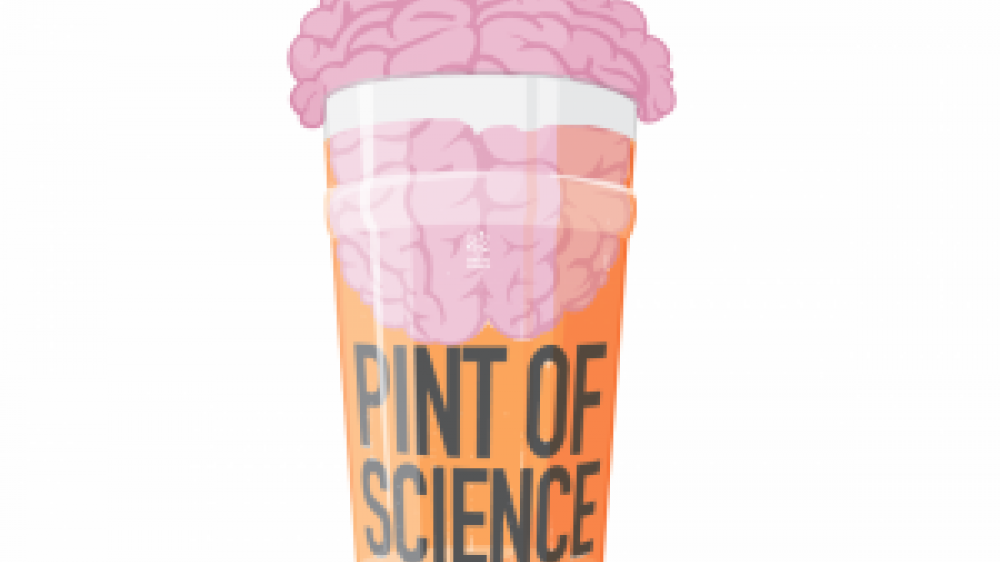Coming up: NC3Rs events at Pint of Science 2017

The Pint of Science festival is returning to pubs around the country on 15 - 17 May.
We are sponsoring events in Glasgow, London, Oxford and Sheffield, where you can meet some of the researchers we work with and hear them speak about their 3Rs-related research.
Pint of Science has been rapidly growing in popularity in the UK and internationally. This year, 150 pubs across the UK will be hosting 400 Pint of Science events, with speakers from nearly 40 research institutions.
The tickets are only £4 and are available online through the Pint of Science website. Many of the events sell out so make sure you get your tickets in advance to avoid disappointment.
See you there!
Glasgow, 15 May
At the Glasgow event, Professor Sue Barnett from the University of Glasgow will show how much we can learn about the brain from cell culture models. She will highlight an in vitro model of spinal cord injury which she developed, and which has the potential to reduce animal use in some studies.
Also from the University of Glasgow, Dr Mathis Riehle will talk about his research on nerve repair without using animals, instead employing tissue engineering and the use of biomaterials to explore his research questions.
Graham Robertson, from the team of Dr Michele Zagnoni, University of Strathclyde, will present ‘simple’ yet technologically advanced models of brain disorders. He will describe how using microfluidic ‘organ-on-a-chip’ systems for neuronal cell culture helps improve the understanding of brain diseases.
Tickets and details: The building blocks of the brain
London, 15 May
On the same night, attendees in London will hear about the NC3Rs-funded work of Dr Jane Sosabowski from Queen Mary University of London on non-invasive monitoring of tumours in mouse models of cancer. She will explain how non-invasive imaging techniques such as MRI offer a chance to get detailed information about the tumour from the same animal, reducing the number of animals used.
NC3Rs David Sainsbury Fellow, Dr Alessio Vagnoni from the MRC Laboratory of Molecular Biology, Cambridge, will follow up with another aspect of imaging. He will speak about using the ‘humble’ fruit fly to observe movements of proteins and organelles in ageing neurons in its transparent wings.
Tickets and details: Happy animals, good science
Oxford, 15 May
The audience in Oxford will hear Dr Sara Wells from MRC Harwell speak about Rodent Little Brother, a sophisticated system developed through our CRACK IT programme that can automatically monitor laboratory mice 24/7 in their familiar home cages. The system offers animal welfare as well as scientific benefits: it measures the animals’ activity remotely and collects more information than traditional tests, offering a chance to see very subtle changes in behaviour, movement and social interactions.
Dr Oliver Britton will speak of his interest in how the brain and heart communicate by electricity, and how he currently studies this in the context of pain. Oliver was awarded the 3Rs Prize in 2014 for using computational modelling and simulation to understand the electrophysiology of the heart without using animals.
Tickets and details: Brains and Behaviour
Sheffield, 17 May
Dr Enrico Dall'Ara from the University of Sheffield will present his work on ‘Virtual physiological mice’ for studying bone-related diseases. He will explain how the use of computational models can help improve the design and assessment of new treatments and to reduce and partially replace the use of animals in musculoskeletal research.
Professor Stephen Renshaw, also from The University of Sheffield, will speak about the possibilities of using simple organisms such as the fruit fly or zebrafish as non-mammalian research models. The audience will hear more about his research aiming to reduce the number of mice used in asthma by developing a model of cell-cell interaction in zebrafish larvae.
Tickets and details: Alternatives to Research Requiring Rodents
Read more about previous Pint of Science events sponsored by the NC3Rs:
